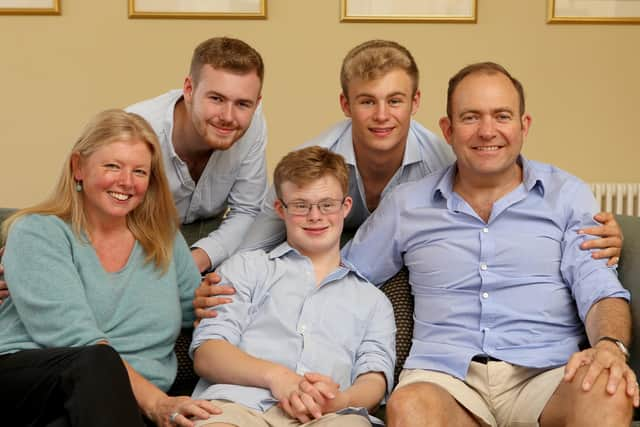Portsmouth Down Syndrome Association celebrates after government backs proposed new laws to improve lives of those with condition
and live on Freeview channel 276
The Down Syndrome Bill is expected to be passed by the government later this month after Ken and Rachael Ross from Portsmouth Down Syndrome Association and the National Down Syndrome Policy Group (NDSPG) lobbied for change.
If successful, the new act would lead to a national strategy to improve provision and outcomes for all those living with Down Syndrome in the UK. It will include maternity care, education, health, social care and employment.
Advertisement
Hide AdAdvertisement
Hide Ad

The Autism Act became law in 2009 and preceded the establishment of the national strategy to help meet the needs of adults with autistic spectrum conditions in England. But the Down Syndrome Act will go further, identifying needs in all areas, for all individuals with Down Syndrome across the whole of the UK.
MP Dr Liam Fox backed the association’s bill over thousands of others after he was selected in a ballot of MPs to introduce a bill on a subject of his choice.
The campaign for the new bill was also backed by Tommy Jessop, who played Terry Boyle in Line of Duty, and CBBC presenter and actor George Webster.
The bill will put people with Down syndrome on an equal footing with other minority groups to ensure that councils and public bodies such as schools, NHS organisations, social care services and job centres are required to meet the specific needs of people with Down Syndrome.
Advertisement
Hide AdAdvertisement
Hide AdRachael Ross MBE, mother to Max who has the condition, said: ‘We are thrilled that our draft bill has been backed by the government.
‘Like all bills it may see amendments along its passage, but with the help of Liam Fox, the NDSPG and the community we are determined to do the best we can to make this a meaningful bill. It's certainly a step in the right direction and is long overdue.
‘The Down Syndrome Bill is essential to address the specific deficiencies and barriers faced by people who have Down Syndrome and we hope that MPs across all parties will vote for this bill. We will work hard to support any information needs those politicians may have to ensure they are fully informed about the issues before the vote.’
Dr Fox said: ‘My aim is to deal with three main areas. The first is to de-stigmatise Down Syndrome and to re-educate both the public and professionals about the advances, including in life expectancy, that have occurred in recent decades.
Advertisement
Hide AdAdvertisement
Hide Ad‘The second is to ensure that current provision of services is improved, whether provided by health, education or local services, by ensuring that providers give due consideration to those with Down syndrome when designing service provision.
‘The third is to look ahead and deal with future issues, such as long-term care, in an era where, for the first time, many of those with Down syndrome will outlive their parents.
‘By giving due thought to the issues today we can prevent avoidable human tragedies in the future.’
SEE ALSO: Over 1,200 new Covid cases in county
CBBC presenter George said: ‘I would like to see the bill become law, then I think everyone like me with Down Syndrome will get better healthcare, more access to services and be more included in society. It is possible. It happens for some now, but it shouldn't be a lottery.’
Advertisement
Hide AdAdvertisement
Hide AdActor Tommy added: ‘Everyone needs help now and then. We just need chances in life like anyone else.’
